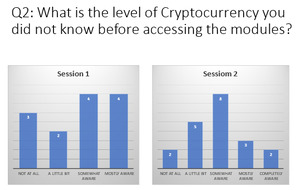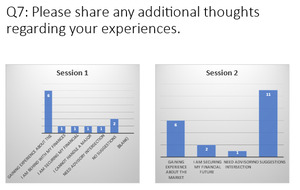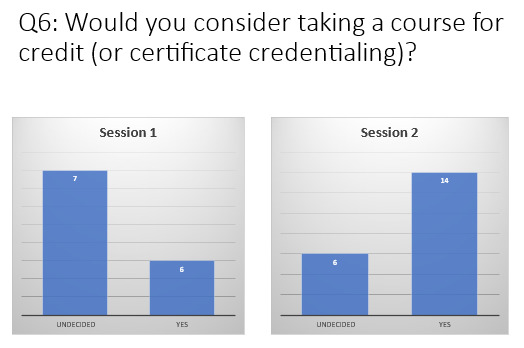1. Introduction
Since internet communication technology (ICT) evolves rapidly and mobile devices (including smartphones) enable mobile commerce, financial technology has grown explosively. As a result, FinTech (a combination of the words “finance” and “technology”), initially referred to as computer technologies supporting the back offices of banks or trading firms, now describes various technological interventions in personal and commercial finance (Kagan, 2022). According to Adroit Market Research (2022), The size of the global FinTech market was estimated at $110.59 billion in 2020 and is expected to increase at a compound annual growth rate of 20.5% to reach $699.50 billion by 2030.
The advancement of complex information technologies is an enabler of FinTech. For example, Blockchain technology, artificial intelligence (AI), machine learning, ePayment system, data mining, and big data analytics support the development of a FinTech business model. FinTech is considered to be an interdisciplinary subject involving finance, technology, and innovation (Leong & Sung, 2018). The FinTech job market includes FinTech engineers, FinTech IT and operations, data science in FinTech, etc. Europe will host an estimated 40,000 FinTech establishments in 2022, responsible for 8,000 job openings in 2021 (Ruggero, 2022).
Universities appear to be embracing FinTech and Blockchain in a variety of ways, including by establishing student groups and introducing courses, degree programs, and lecture series. FinTech has become a part of the curriculum at many prestigious universities (for example, the University of Florida, Morgan State University, etc.). Some programs provide a stronger emphasis on technology, for instance, by educating students on the intricacies of Bitcoin, Blockchain, and other cryptocurrencies. In addition, other programs concentrate on data analytics, which is a crucial advantage of strong FinTech (Kursh & Gold, 2016). However, adopting new technologies in academics lags behind the industry’s needs. Some universities, especially small universities or colleges with fewer resources, do not take FinTech initiatives. However, internet and intranet technologies offer tremendous opportunities to bring learners into the business mainstream as entrepreneurs and potential financial technology consumers.
We performed a FinTech workshop, which introduced the fundamental ideas and terminologies around cryptocurrency, Blockchain, and FinTech to students in a university that does not offer FinTech-related courses. This FinTech workshop was funded by the FinTech Center of Morgan State University with the grant time frame of April to November 2022. The workshops focused on visual presentations and technical discussions that included career opportunities, challenges, and rewards of delving into cryptocurrency. In addition, participants have a greater understanding of the value and trends of cryptocurrency.
The workshop included the following goals: 1) Using the current learning management systems (LMS) to create asynchronous modules on understanding cryptocurrency, fin technology, and Blockchains. 2) Providing three face-to-face or virtual workshops with guest speakers – to demystify and bring understanding to the greater Edward Waters community on the challenges and opportunities in financial technology. 3) Program outcomes are expected to increase knowledge of cryptocurrency and financial technology by 25% throughout the grant timeframe. 4) Developing a certificate program with prospects of a developing course on financial technology addressing Blockchain and cryptocurrency.
The rest of this paper is organized as follows: Section 2 highlights literature reviews on Blockchain technology and FinTech. Section 3 presents the methodology. Section 4 explains the results showing statistics of the workshop. Finally, section 5 describes the conclusion and limitations of the study.
2. Literature Review
2.1. Blockchain Technology
Different technologies support different financial business models. However, they frequently incorporate Blockchain technology, artificial intelligence (AI), machine learning, and other big data functions like robotic processing automation (RPA). Blockchain technology, developed in 2008 by Satoshi Nakamoto, is one of the key components of FinTech. Blockchain technology uses distributed ledger technology (DLT), which has appealing properties for the banking and financial services industry, to enable transactions between people without the use of intermediaries. In addition, they have integrity and do not require trust in a third party to complete transactions because they employ distributed open-source protocols to operate (Treleaven et al., 2017). The main building blocks of a Blockchain (Cachin, 2016) are 1) Transactions, which are signed pieces of information created by the participating nodes in the network and then broadcast to the rest of the network. 2) Blocks are collections of transactions that are appended to the Blockchain after being validated. 3) A Blockchain is a ledger of all the created blocks that make up the network. 4) A Blockchain relies on public keys to connect the different blocks. 5) A consensus mechanism is used to decide which blocks are added to the Blockchain. Blockchain technology is hard or impossible to hack, change, or cheat its systems. Such systems are resilient and can operate as decentralized networks without requiring a central server and do not have a single point of failure.
Blockchain technology is a type of distributed ledger technology (DLT) that is a decentralized database managed by multiple participants. DLT records transactions with an immutable cryptographic signature called a hash. The properties of DLT (Euromoney.com) are shown in Figure 1.
2.2. Financial Technology (FinTech)
FinTech is a combination of the words “finance” and “technology” and refers to “an innovative technology that improves and automates the delivery and use of financial services” (Kagan, 2022) or “the disruptive technologies driving startups and revolutionizing banking, payments, and insurance” (Botta et al., 2022). FinTech today supports a variety of financial activities by streamlining the transaction process, eliminating potentially unnecessary steps for all involved parties. For instance, a mobile service like Venmo or CashApp allows people to send money to other people or transfer funds directly to their desired bank account. In addition, FinTech enables financial services such as money transfers, depositing a check with their smartphone, bypassing a bank branch to apply for credit, raising money for a starting business, or managing investments, typically without the assistance of a person.
FinTech creates many startups, such as FinTech companies, that leverage technologies to provide enhanced and automated services for businesses and customers. Some examples include peer-to-peer payment services (e.g., Venmo, Zelle, Paypal, CashApp), mobile banking, automated portfolio management services (e.g., Interactive Advisors, E*Trade), or stock trading platforms such as Robinhood. They also can develop and trade cryptocurrencies (e.g., Bitcoin, Ethereum). FinTech has a variety of business models that consider security, speed, and innovation in the financial services sector (Gomber et al., 2018). FinTech startups will have fierce competition in the financial industry. FinTech firms must test, configure, and design applications that integrate typically heterogeneous technologies. Particularly in a lean/agile venture context, testing via live simulations and actual operating situations is an essential component of the development process (Arner et al., 2017).
2.3. Developing Content for the FinTech Workshop
Creating a workshop with a FinTech grant depends on the instructor’s experience, the method used to convey the information, and corporate partnership involvement. Capturing such consumer and corporate reactions requires fusing different cryptocurrency market scenarios and perceptual data into the learning management system (LMS) framework (discussions, teamwork, and problem-solving scenarios).
The participants learn how cryptocurrencies use Blockchain technology to facilitate peer-to-peer digital transactions and their impact on the financial market. The instructor presents the mechanics of the Blockchain protocol and provides scenarios to address Blockchain technologies aimed at solving and addressing business goals. The framework to convey the information is the LMS which includes discussions, teamwork, and problem-solving scenarios under the control of the E-learning personnel. In addition, the workshop developer is a subject matter instructor for capturing textbook explanations and corporate assistance for sharing real-world interpretations.
Engaging faculty and staff in Learning Management Software (LMS) empowers academic organizations to train students with the skills needed to stay modern and relevant in today’s fast-paced world. The workshop (2 sessions asynchronous) can be implemented at the university for a concentration in fin technology. Participants will gain critical Blockchain skills via the LMS platform and will demystify the concepts of Blockchain technology and cryptocurrency. The workshop represents alternative ways of thinking about and analyzing the relevant cryptocurrency factors by developing specific tasks. Using the proposed workshop, the institution will affect faculty and student engagement at the campus level.
This workshop course provides the basics of the cryptocurrency business and discusses the history and mathematical concepts of encryption. The learners practice encrypting messages to understand what makes a good encryption scheme. The perspective conveys to the learners how information on a Blockchain is secured, legitimized, and authenticated without needing third-party verification.
Three learning modules were created, considering an effective way to deliver the main topics, FinTech. The learning objectives and outcomes of the three modules are shown in Table 1.
3. Methodology
Developing a workshop on a learning management system (LMS) requires a variety of interested parties involved: the LMS administrator, the developers of the workshop, the IT technician, and the cooperation of the administration. Edward Waters University has used Moodle LMS systems for a long time to provide classes each semester to students and faculty. We developed a novel multimodal workshop on our LMS learning framework that combines multimedia data by creating strategies that apply to cryptocurrency predictions in the financial business market. The workshop model integrates outside resources and expertise to accommodate diverse society and learning challenges. The framework shows the prediction of Blockchain concepts technology to include several benchmark purposes of the cryptocurrency. The framework uses the model’s components for marketing decisions, such as forecasting the success of various cryptocurrency markets.
The workshop home page is created on Moodle (an open-source learning platform), which includes the overall workshop explanation, an informed consent form that is needed to collect participants’ responses, the pre-and post-test, and three modules. The three modules are placed in-house in a virtual asynchronous format with cohorts of participants (approximately 20-25) to learn about FinTech. Additionally, the workshop has guest speakers in a pre-recorded form who speak on the realities of the cryptocurrency market. They address current and future trends and state what current opportunities there are in the field for career development, personal financial development, and/or business development. After completing each module, the participant takes a short, interactive quiz, which requires 70% to pass the module. If the participant does not pass a module, he/she retakes it until he/she gets over 70%. Otherwise, the participant is allowed to move to the next module by the system.
Once the participant completes all three modules with a passing grade, he/she is entitled to receive a certificate automatically generated by the workshop system. We also assess the pre- and post-knowledge of each participant through short surveys and questionnaires. Finally, to encourage students, staff, and faculty to participate in the workshop, we offer a $50 Tango card to all the participants who complete the workshop.
Two sessions of the FinTech workshop are organized; The first session starts on September 11 and ends on September 24 (14 days), and the second session starts on October 9 and ends on October 22, 2022. Data from each session were collected from the pre-and post-test, test scores of each module, post feedback questions. Twenty-five participants (11 students and 14 faculty) were registered for the first session of the workshop, and only 13 participants (4 students and 9 faculty) completed it. Seventy-one participants (56 students, 15 staff, and faculty) were enrolled for the second session of the workshop, and only 20 participants (13 students and 7 staff and faculty) completed it. The analysis is conducted and presented in the following section.
4. Results
This workshop targets the greater Edward Waters University community to learn about cryptocurrency’s challenges and rewards. The current student population is approximately 1,000 students, with 25% of those students majoring in business administration. However, less than 2% of the current population at Edward Waters University is aware of cryptocurrency and Blockchain technology. By the same token, there are approximately 200 faculty and staff at the university, and less than 5% know about cryptocurrency or engage in cryptocurrency markets (see Q2 in Participant Feedback questions in Appendix 2). The statistics for each session are shown in Table 2. The pre and post-tests include the same questions to measure the participant’s progress on the topic and are attached in Appendix 1.
The participants in session 1 showed progress of 18.5% from the pre-test to the post-test, while the participants in session 2 showed progress of 12.67% from the pre-test to the post-test. All the participants in both sessions completed the informed consent form, and the course averages are 86.6% and 87.55%, respectively. Completion rates of the courses were 52% in session 1 and approximately 28.2% in session 2.
After the workshop, we collected participant feedback and expectations for the assessment. Seven questions were given to the participants, who had to respond or make a decision. Appendix 2 contains the feedback questions. The following figures display the statistical comparisons for the feedback from the two sessions.
Figure 2 shows question 1 from the feedback questions. 11 out of 13 participants (85%) in session 1 responded “satisfied” or “very satisfied” with the workshop, while 18 out of 20 participants (90%) in session 2 did the same.
Figure 3 shows question 2, “What is the level of cryptocurrency you did not know before assessing the module?” In session 1, 5 out of 13 participants (38.5%) responded “not at all” or “a little bit,” whereas 7 out of 20 participants (35%) did the same in session 2. The figures show that many participants were aware of the term cryptocurrency before taking the workshop. That means the participants know the importance of cryptocurrency.
Figure 4 shows question 3, “If you could make any recommendations to improve the course experience.” Interestingly, 5 out of 13 participants (38.5%) in session 1 responded with “no suggestion,” while 9 out of 20 (45%) in session 2 answered the same.
Figure 5 shows question 4, “Would you consider taking other modules on Financial Technology?” 13 out of 13 participants (100%) in session 1 responded “yes,” while 19 out of 20 (95%) in session 2 answered the same choice. The figures show that many participants want to learn more about cryptocurrency or to take an intensified course about FinTech.
Figure 6 shows question 6, “Would you consider taking a course for credit (or certificate credentialing)?” 6 out of 13 participants (46.2%) in session 1 answered “yes,” while 14 out of 20 (70%) in session 2 answered the same choice. The majority of participants in session 1 were mostly faculty, and the majority of participants in session 2 were students. Students want to take this kind of workshop for credit or a certificate.
Figure 7 shows question 7, “Please share any additional thoughts regarding your experiences” 6 out of 13 participants (46.2%) in session 1 answered “Gaining experience about the market,” while 6 out of 20 (30%) in session 2 answered the same choice. 11 out of 20 participants (55%) in session 2 answered, “No suggestions.”
5. Conclusions and Limitations
The FinTech workshop conducted pre- and post-surveys to gain insight into the learner’s experiences on the modules. The positive learning progress of participants in both sessions is identified, 18.5% and 12.67%, respectively. However, the completion rate is relatively low in session 2 (28.2%), compared to 52% in session 1. Session 1 had more faculty than students, while session 2 had more students than faculty and staff. Since students are taking other classes at the same time as this workshop, they might forget or neglect to complete the workshop. Faculty seem to be more responsible for completing the workshop. Increasing the completion rate is challenging, even if a $50 Tango gift card is promised to boost the completion rate.
Insights from the participants’ feedback in both sessions are that all the participants want to take more similar workshops in the future about cryptocurrency, Blockchain, and Financial Technology. Hence, the recently revealed fourth module (Developer Area), which delves into the intricate technicalities of Blockchain and FinTech, can be made available to anybody seeking to participate in comparable seminars. Furthermore, it is worth noting that 38% and 35% of participants from both sessions were previously unaware of FinTech before attending the workshop. However, their understanding of FinTech significantly improved as seen by their enhanced test results following the workshop. It implies that the contents of the workshop (visual presentation, audio presentation, and FinTech expert guest lecture) and rewards (Tango card and a certificate) stimulate the learners’ learning attitudes, unlike regular workshops/seminars, which usually include presentations, discussions, and/or problem-solving for a specific topic.
The practical implications of this research are that the workshop could be offered to students as a one-credit-hour course or be used with an entire or part of modules employed in relevant courses, such as Finance or Computer Information Courses. The decision of top administration or interested faculty could be essential to adapt this workshop. In addition, this workshop can be offered to other university students as long as the IT of the hosting university permits external access to the workshop on its LMS. It would be difficult or time-consuming to alter or update the curriculum of a university due to the committee and administrative approval processes. For the trending technologies (chatGPT, Blockchain, Metaverse, etc.), we can educate students on those technologies using the workshop platform like our FinTech workshop platform. The workshop platform can be constructed much faster than the approval time of the course proposals for those technologies. The workshop can be incorporated into an existing or stand-alone credit course.
This study has limitations on data analysis because the data collected are minimal. Future research will gather more participants for the modules. It might perform a t-test, which compares the average between the student group and the faculty and staff group in terms of their progress, experience, and intentions or between sessions. Another limitation of this study is that the workshop was conducted in asynchronous virtual environments on Moodle. The completion rate might increase if the workshop is conducted in a face-to-face setting. It could be another future research project.
.png)






.png)





